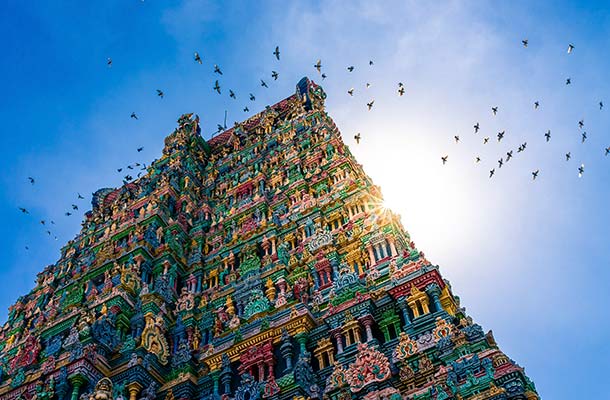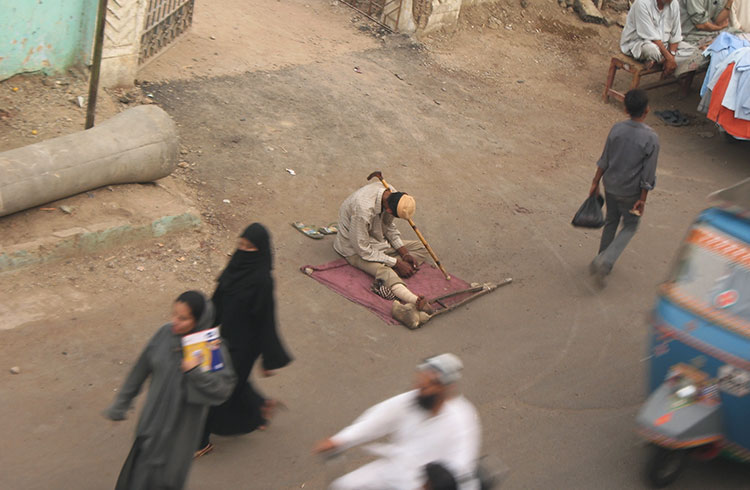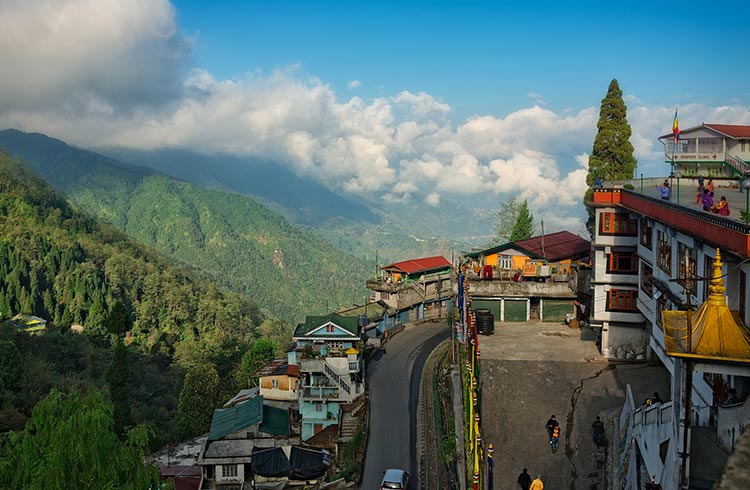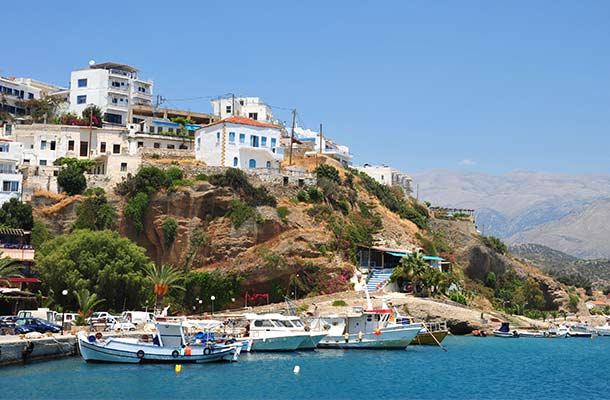Volunteering in India: A Festival of Portraits
Bianca took her camera to Madurai, in Southern India to not only take photos, but to give them back to the community.
 Photo © iStock/val_shevchenko
Photo © iStock/val_shevchenko
Bianca Anderson worked in the south of India through Engineers without Borders with an NGO that strives to improve the livelihoods of landless families and the marginalised rural poor. Wild medicinal herb collection and sale to market is one way that families in these areas can access additional income, farming isn’t an option for a lot of landless families. She took Sanchez the World Nomads camera on this journey through India.
“The process of sharing photos has helped to build strong relationships around a platform that, regardless of our many differences, we can all relate to–family.” - Bianca
“I’ve been in Madurai for five months working with a local non-government organisation (NGO) and Engineers Without Borders Australia. So I had the pleasure of taking Sanchez to meet some of my neighbours, the ladies who we work with, I visited their village during Pongal, a 4-day harvest festival celebrated in Tamil Nadu. Outside the city I’ve been working alongside village ladies at a rural herb-processing site.
The Covenant Centre for Development operates the unit as part of a bigger mission to provide livelihoods to the rural and landless poor. The site provides regular employment for a number of village women and a few men, using their traditional knowledge and skills to process raw herbs into quality material for traditional and Ayurvedic medicines.
Madurai is most known for it’s famous Meenakshi Amman temple, which is the dominating centre of this small (in Indian terms) peri-urban city. Confined to the temple area you’re likely to find the usual faces: guys selling maps of South India, ladies selling you jewellery for a ‘nice price’, a few beggars, any choice of seasonal fresh fruit juices, tea (oh there is always tea) and depending on the month, hoards of pilgrims of different local origin. For a particular pilgrimage the men travel in groups, ladies separately, go barefoot and refrain from shaving or cutting their hair. These unkempt pilgrims are in stark contrast to the local Madurai Tamilians.
The culture in Madurai is pleasantly traditional and reflected in the way people dress – you’ll rarely see men in shorts, women out of sari or girls in western dress. The Tamilian woman wears her long black hair braided, jasmine flowers pinned in the back and toe rings, gold necklace (or thali) and red vermillion in the part of her hair to signify her marriage. She’ll likely jingle down the street with silver anklets and ask you where your gold earrings and bangles are.
Around my locale the streets are narrow, palm trees rise above the small apartments and there’s a temple not too far from every corner. Passing by the local temple in the early morning I stopped to admire the column, of the temple beautiful designs made from coloured powders, in front of the temple entrance. ‘Super!’ I offered my appreciation to the family who were worshipping at the temple as I took a few snaps. Meanwhile they pushed their small children into frame and encouraged a pose for the photo. Showing them the digital of themselves on the screen and seeing their delight I was glad to have Sanchez stashed in my bag. So they posed again and were surprised to see the instant from the camera.
This is my favourite part – where the ice breaks and the action of taking a photo becomes interactive. It’s the same every time. At first they don’t know exactly what’s happening, staring blankly at the white slide, turning it over a few times. But soon, shapes start to emerge and colours start to appear. There’s always a little laugh and as the slide develops so does the smile across their faces. A colleague who came with me on one of my wanders around the city noticed it too, ‘The look on their faces is priceless’. Not only a smile, I noticed a great sense of pride when the photo was shared with family and friends close by. Another neighbour had shown the portrait to his family and when I passed later that week for tea he passed on their gratitude, ‘My family thank you very much for the photograph.’ They’d be able to send it to family who were now living in the UK.
Out at the work site the women constantly ask me about my family. I’ve shown them photos of my family on my laptop and they share family photos on their phones. The process of sharing photos has helped to build strong relationships around a platform that, regardless of our many differences, we can all relate to–family.
With Sanchez swung under my arm I asked them what type of photo they’d like. A translated response revealed that they wanted only a group photo. Previously discussions around work had revealed that the ladies also wanted a uniform. The workplace, for them, didn’t just provide employment; it provided a place where they could belong and feel proud of. They call me ‘sister’ and the community feels like an extension of the family unit. Stripping off their dirty work shirts and hairnets the women called their colleagues to pose together; arms casually swung about each other’s shoulder. When the younger women understood how the camera worked they explained to the older women. One woman insisted on blowing on her developing slide to help the picture to appear. I had to giggle later when I saw her explain to the gentlemen this was the case and see them follow her advice. One of the oldest women at the site looked vacantly at the slide and asked, ‘Where am I?’ Her vision was not so good but she managed a wicked laugh (I’d not heard her laugh before) when she located herself in the photo with the help of another worker.
Later, in the spirit of Portrait Equality, I printed a group photo for everyone. They said it would be a way for them to remember me, reminding me to think of them too.
Sanchez not only provided photos, but memories and conversations. Inspiring others to share their family portraits and to tell stories about distant family members, weddings, birthdays and loved ones lost. Returning to the house of a neighbour I noticed the photograph I’d taken of them pinned carefully on the doorframe next to a family portrait taken many years before. It’s nice to think that these small memories of a moment will become cherished family souvenirs in years to come.”
About Bianca
“Photography for me is a tool for reflection and my creative voice. I strive to share what I encounter, to inspire others, to evoke those emotions I experience through images.”
Bianca Anderson likes to travel but also loves an adventure; her highlights include walking 890 Km from France to the Atlantic Ocean and building a bike and riding it up the Mediterranean coast. She likes to hitchhike, couchsurf and continues to put herself out to the world to meet and learn from new people. Bianca is currently volunteering with Engineers without Borders in the south of India with The Covenant Centre for Development (CCD), an NGO that strives to improve the livelihoods of landless families and the marginalised rural poor. Wild medicinal herb collection and sale to market is one way that families in these areas can access additional income. Through social enterprise, CCD has worked to develop a model that allows these collectors avenues to market receiving fair prices for their goods. The collectors and villagers own the enterprise so the profits go directly back to the community.
About Portrait Equality
Portrait Equality is a Sydney based not-for-profit project that loans out instant cameras to photographers travelling in developing nations and remote communities so they can provide family portraits to those they meet. The goal is to give photos, not just take them, and perhaps give a villager their first family picture.
Heading to India? Download our FREE Insider’s Guide!
Related articles
Simple and flexible travel insurance
You can buy at home or while traveling, and claim online from anywhere in the world. With 150+ adventure activities covered and 24/7 emergency assistance.
Get a quote


No Comments